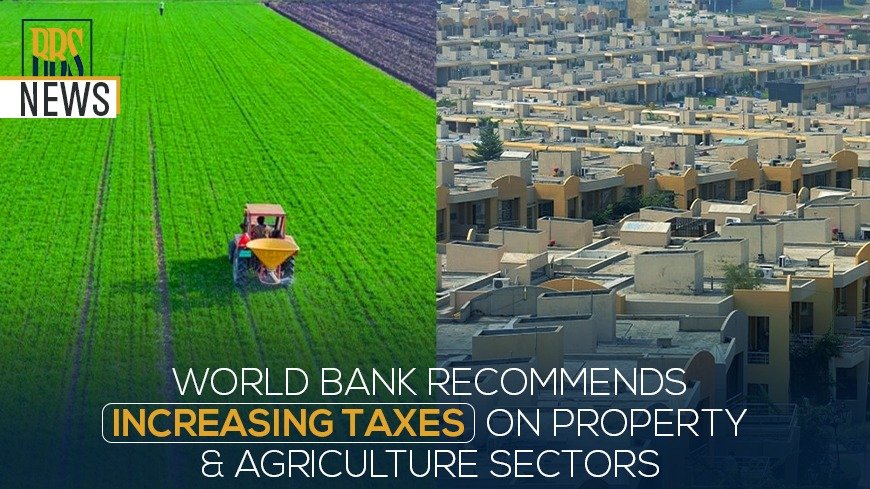- October 7, 2023
- Posted by: Muhammad Shehzad
- Category: RBS News

The World Bank (WB) has recommended that Pakistan enhance its tax collection initiatives, specifically advocating for higher taxes on property and agriculture. This information was reported in a leading newspaper on October 4th.
In its report titled ‘Pakistan Development Update: Restoring Fiscal Responsibility,’ the World Bank (WB) proposed tax reforms related to property and agriculture to strengthen Pakistan’s fiscal stability and enhance property tax collection.
Read: Sindh Government Focus On The Collection Of Property Taxes
While, in terms of agricultural tax reforms, the WB recommended modifications to the existing 12 1/2 acre tax exemption threshold. It aims to encompass a larger portion of agricultural land within the tax framework.
Furthermore, the bank suggested the implementation of appropriate land categorization criteria for tax rates. It considers factors such as size, location, and irrigation status. This strategy could potentially generate extra provincial revenue amounting to about 1% of the GDP.
Additionally, the WB stressed the importance of addressing the taxation of agricultural land being utilized for non-agricultural purposes, which currently takes advantage of tax arbitrage.
Read: Government Plans To Impose A Wealth Tax On Moveable Assets
World Bank (WP) Recommendations
To enhance property tax collection, the World Bank (WB) has put forth several recommendations:
- Increase property taxes to be in line with those observed in similar economies. For instance, in Punjab, where the Urban Immovable Property Tax (UIPT) rate is at 5% of the annual rental value. This corresponds to a capital value-based tax rate of only 0.07%, significantly lower than the 0.5% seen in many low-income countries.
- Harmonize the valuation systems currently in use for various land-related taxes. The aim is to establish tax rates based on capital values that accurately reflect prevailing market prices.
- Ensure accurate record-keeping of land ownership linked to individuals’ Computerized National Identity Cards (CNICs) and National Tax Numbers to improve tax enforcement.
- Enhance the policy and legal framework to encompass sizable peri-urban settlements outside existing municipal boundaries within the appropriate land taxation.
Furthermore, visit RBS for the latest news updates.
